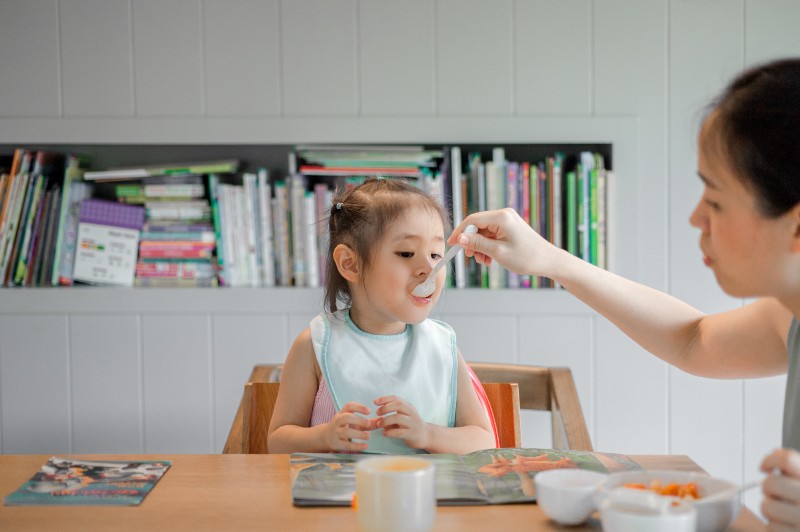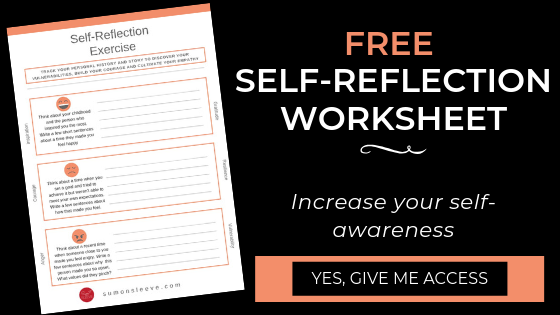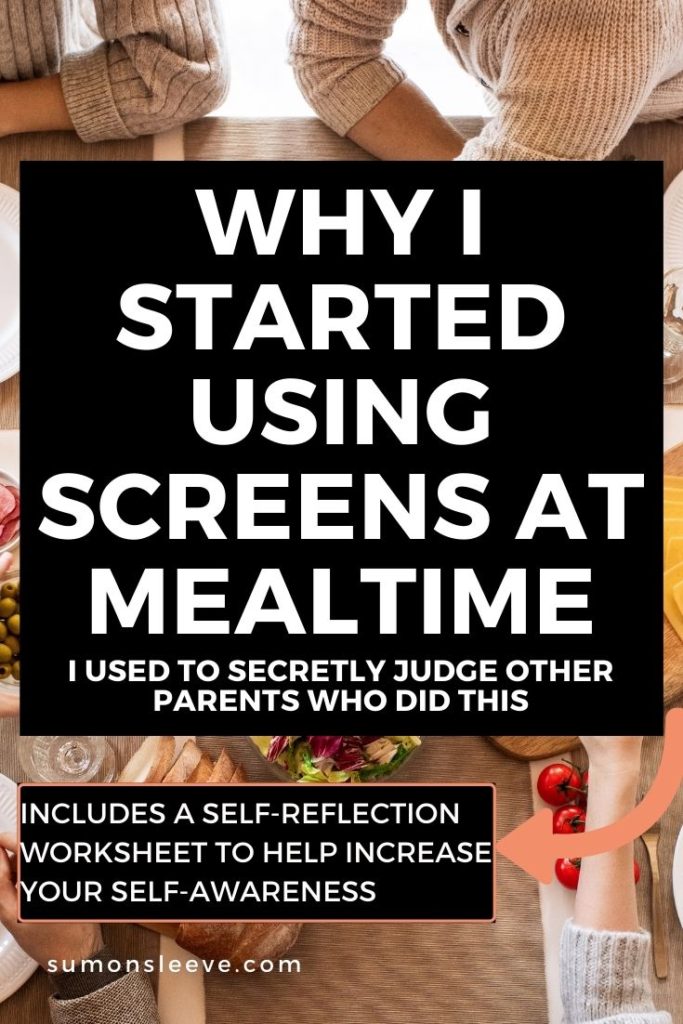Mealtime with my firstborn was easy and stress-free. I would judge other parents for using a screen at mealtime. Then I had my second.

When it was just the 3 of us…
When I first became a mom, I wanted to do everything by the book. But of course, like a naive new parent, I realized quickly that guidelines are merely guidelines and not meant to be followed to a T. Things don’t always go as expected. I thought I would never co-sleep, never do formula, never yell, never swear, never bribe, never lie…
Never say never.
So when my daughter started solids, to my pleasant surprise, she was the ideal toddler. She ate everything and anything, leaving her bowl clean as a whistle, no tears, no fuss, no waste, barely a mess. Mealtimes with her were stress-free and easy. It was fun watching her gobble up her yams as quickly as her chicken congee.
At dinner, my husband and I would actually have a conversation and catch up with each other, just the 3 of us mindfully enjoying our meal, being present with one another. It was like one of those stock photos of a family eating dinner, smiling and laughing with perfect lighting.
When I saw other parents whip an iPad out at restaurants, I would secretly judge them for using a screen as a crutch. I’d criticize them,
“If they only tried harder or explored other ways to get their child to eat…”
Then there were 4…
Now I swallow my judgement because when our son joined us at the dining table, things took a 180-degree turn.
He is a sensory seeker, tumbling, fumbling, chewing, gnawing, tossing and turning. So when he started solids, it was messy and chaotic; food went everywhere, even in places I didn’t think was possible (like between his toes). It looked like he needed a bath after every meal. Very little food actually stayed in his mouth because every bit he managed to put in, he would take out and play with it.
Then it would roll off his tray and onto the floor. Then when there’s nothing left, he’ll get bored, start to whine, begging to get out of his highchair to go play.
I didn’t expect this; it was stressful and frustrating. I couldn’t help but compare him to my daughter. I did the exact thing with him as I did with her when she started solids (same age, same mealtimes, same types of food, same chair, same utensils etc).
Why didn’t it generate the same result?
Because they’re two different people even though they have the same parents. What works for one child may not work for another.
I was completely against it because of my past eating disorder
I was really against using screens at mealtime because of everything I know about distracted eating. It prevents them from listening to their bodies, enables unnecessary snacking between meals, and increases their risk of obesity later in life; using screens at mealtimes seems to do more harm than good.
In addition, I’ve personally struggled with emotional eating most of my life and battled an eating disorder when I was a teenager. It wasn’t until my late 20’s when I started treating my body right. Learning to eat mindfully, listening to my body’s hunger and full cues and appreciating food instead of viewing it as an enemy was a significant part of my recovery.
And I want my kids to learn to self-regulate how much they need to eat early on so that they don’t go through what I went through.
But then, one day, in a fit of frustration while struggling to feed my son scrambled eggs, my husband turned the TV on, flipped it to a Cantonese episode of Peppa Pig and within seconds, there were silence and stillness.
He eats more, less mess, less waste
As his attention drew to the screen, I fed him a spoonful of eggs and he gulped it down with ease. He was finally eating. He wasn’t as hungry later on nor was he asking for snacks. He just ate and when he had enough, he stopped.
It was cleaner. The mess stayed on his mouth, tray and bib, nowhere else. I didn’t have to pick food up from the floor and throw it away. There was less food wastage which is a huge pet peeve of mine.
It helps our marriage
My husband and I would fight over who would feed him. Neither of us wanted to deal with his tantrum, have food thrown at us and clean up after him. And when we did, we would micromanage each other on how to do it.
He’d tell me to offer smaller pieces. I’d tell him to offer bigger pieces.
He’d get frustrated when he made a mess. I’d tell him to relax because that’s how toddlers eat.
He’d stop feeding him and say he’s full. I’d scold and lecture him that he’s still hungry.
He’d give up. I’d resent him. Then I’d keep trying to feed him; he’d say I’m undermining him as a parent. And the cycle of fights went on and on.
However, when the screen was on, we could feed him easily. We fight less; in fact, it lets us have an actual conversation at dinner and catch up with what went on during our day.
Keeps family mealtime sane
When we would fight, our daughter would see it as an opportunity to do whatever she wanted. She would leave her seat and start playing with her toys. Then our son would see her do that and want to play too. We’d tell her to come back to the table; she’d say she’s not hungry even though she’s left most of the food on her plate, which isn’t her normal behaviour.
Other times, because both of us are so focused on trying to get our son to eat, our daughter would feel left out and do things to get our attention; she’d throw a tantrum, scream and whine over something she doesn’t usually get upset about like finding a toy she doesn’t really care about.
When the screen is on and he’s eating properly, she doesn’t leave the table because she knows we’re watching her. The screen helps slow things down, dulling the chaos, keeping our family sane during mealtime.
It lets me practise mindfulness when I eat
Before we started using screens, feeding my son was my top priority during mealtime; everything else had to wait, including feeding myself. By the time he was done, my food would be cold and I would be ravenous. I’d scarf my plate down, not knowing how much I ate or what it tasted like. Eating became a checkbox.
However, food is a huge part of my culture and my livelihood; teasing out a healthy relationship with it has been an ongoing journey. I need the time and space to eat my meals. When the kids are quiet and still, I can eat in peace, practicing mindfulness and gratitude, being in tune with my body and appreciating the flavours, smells and textures.
If turning on a screen gives me a little less stress and helps prevent a relapse of my food issues, I think it’s worth the risk. Besides, I don’t expect this to be the norm for too long.
It’s temporary. This too shall pass.
For now, we begin all our meals without screens and only turn it on when we sense it’s getting frustrating. However, kids grow up. My son won’t be sitting in a highchair, needing to be fed forever. He’s constantly learning and developing. His skills, abilities, likes and dislikes change over time.
Eventually, he will grow into a little person who can use a knife and fork to cut his pancakes and chopsticks to eat his noodles. Therefore, I’m certain there will be a day when he will be able to sit through a meal without a screen. We will get back to the days where family dinner conversations, laughs and lots of mmm sounds dominate.
Parenting isn’t a cookie-cutter experience. All children need love, support, compassion and kindness. There isn’t the best way to do something, only the right way that works for the child.





